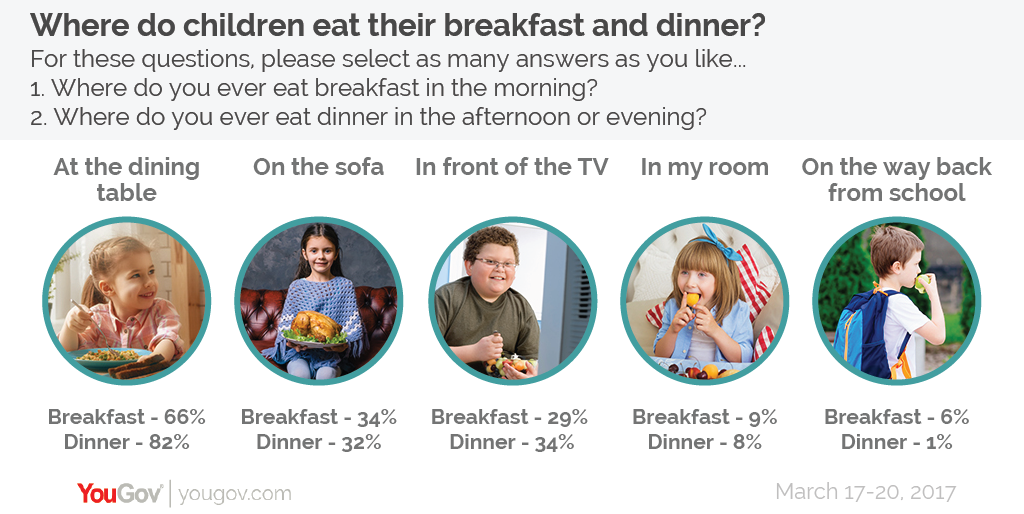The end of family dinners. One in three British children eat dinner in front of the TV
The times when all the family reunited at the dinner table seem to be a thing of the past at least according to a new YouGov study that found that one in three British children eat dinner in front of the TV.
Eating together with family members it’s not only a treasured tradition but it is important for children, at least that is what studies have shown suggesting that kids that have dinner with their parents have better social skills, are less likely to skip classes and also have lower chances of developing obesity.
This is why a recent YouGov research set out to find what were children eat and how that behaviour changed over time. According to the results, one in three children, 34 per cent, eat their evening meal in front of the TV while around three in ten, some 29 percent, do the same when it comes to breakfast.
Couch dinners are especially popular among British children, the study also revealed. Over 30 percent of kids, for breakfast and dinner, prefer the settee as opposed to the regular table and chair and often than not, they turn on the TV set.
This does not mean that tables have become obsolete as 82 per cent of children have tea at the table, although only two-thirds, some 66 per cent, eat breakfast there.

But there is also another worrying trend if we believe in family dinners. The study found that children are getting less sociable with their eating with age.
Around one per cent of children aged six, take their dinner to their rooms, but the percentage rises to 19 when it comes to teenagers aged 15 or older. The same can be said for breakfast. While only 2 per cent of six-year-olds eat in their rooms, some 22% of teenagers prefer having breakfast alone in their room.
For six percent of older children, breakfast is taken on the journey to school but only 1 percent of kids have dinner while returning home.
According to psychologists, frequent family dinners have a positive impact on children’s values, motivation, personal identity, and self-esteem. To make the most of the time spent together, parents are encouraged to turn off televisions, radios and also not to bring other devices to the table. Also, dinners should be an opportunity for conversation but the communication should be a positive one.
Family dinners should not be rushed, child development scientists say, and all the family members have to participate in the cleaning up of the dinner table.